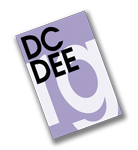Tutela antidiscriminatoria en las relaciones laborales con organizaciones de tendencia religiosa, A la luz de la reciente jurisprudencia del TJUE: asuntos Egenberger e IR-JQ. (RI §422170)

Anti-discrimination protection in labor relations in religious organizations in light of the recent case law of the CJEU -
Ana Leturia Navaroa
El TJUE dictó en 2018 dos sentencias que respondieron a cuestiones prejudiciales relativas a la interpretación del art. 4.2 de la Directiva 2000/78 en sus dos párrafos. El citado artículo establece excepciones al principio general de igualdad y no discriminación en el ámbito de las actividades profesionales de iglesias y organización de tendencia religiosa.
En este trabajo se analizan los criterios que establece el TJUE para interpretar la letra del citado artículo, tanto en lo relativo a la categoría de requisitos profesionales esenciales, legítimos y justificados, así como, a las exigencias de actitud de buena fe y de lealtad hacia la ética de la organización. Se trata de criterios interpretativos vinculantes para los Estados miembros que deberán tenerlos presentes, al establecer límites a la autonomía reconocida a las organizaciones de tendencia religiosa, para poder así garantizar derechos de los trabajadores.
I. INTRODUCCIÓN. II. RELACIONES LABORALES EN ORGANIZACIONES DE TENDENCIA: AUTONOMÍA DE LAS CONFESIONES Y DERECHOS DE LOS TRABAJADORES. III. TUTELA ANTIDISCRIMINATORIA EN LA DIRECTIVA 2000/78 Y EXCEPCIONES PARA LAS RELACIONES LABORALES DE TENDENCIA RELIGIOSA. IV. EL ASUNTO EGENBERGER Y LA OBRA SOCIAL EVANGÉLICA EN ALEMANIA: POSICIÓN DEL TJUE SOBRE EL ART. 4.2 DE LA DIRECTIVA 2000/78, PÁRRAFO PRIMERO, RELATIVO A LOS REQUISITOS PROFESIONALES. 1.Planteamiento de la problemática y de las cuestiones prejudiciales. 2. Resolución del TJUE: control jurisdiccional efectivo, criterios y exigencia de interpretación conforme. V. EL ASUNTO IR Y JQ: POSICIÓN DEL TJUE SOBRE EL ART. 4.2 DIRECTIVA 2000/78, PÁRRAFO SEGUNDO, RELATIVO A LA ACTITUD DE BUENA FE Y DE LEALTAD. 1. Planteamiento de la problemática y de las cuestiones prejudiciales. 2. Resolución del TJUE: ámbito personal de aplicación, control jurisdiccional efectivo, criterios e interpretación conforme. 3. La indisolubilidad del matrimonio canónico como deber acrecentado de lealtad. VI. CONCLUSIONES.
n 2018, the European Court of Justice (ECJ) passed two judgments in response to preliminary rulings regarding the interpretation of art. 4.2 of Directive 2000/78 in its two paragraphs. The aforementioned article establishes exceptions to the general principle of equality and non-discrimination in the field of professional activities of churches and religious organizations.
This paper analyzes the criteria established by the ECJ to interpret the letter of the aforementioned article, both in relation to the category of genuine, legitimate, and justified occupational requirements, as well as to the demands to act in good faith and with loyalty to the organization´s ethos. These are binding interpretative criteria which the Member States must meet when establishing limits to the autonomy of religious organizations in order to guarantee workers´ rights.

 DIRECTORES
DIRECTORES